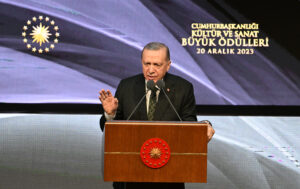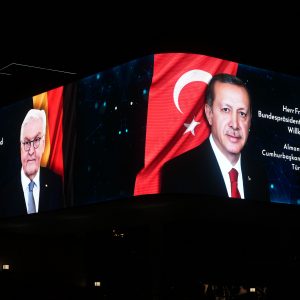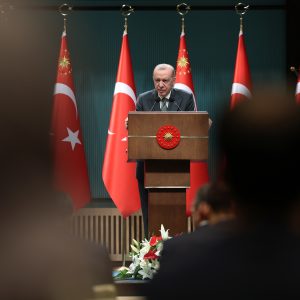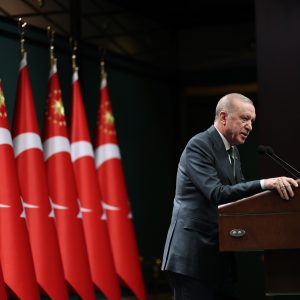UN’s top female Muslim diplomat meets Taliban to convey alarm over women’s rights bans
UNITED NATIONS (AA) – UN Deputy Secretary-General Amina Mohammed held talks with the Taliban about women’s rights, a spokesperson said on Friday.
UN’s top female diplomat Amina Mohammed, Executive Director of UN Women, Sima Bahous, and Assistant Secretary-General of the Department of Political, Peacebuilding Affairs and Peace Operations, Khaled Khiari, completed a four-day visit to Afghanistan.
UN Deputy Spokesperson Farhan Haq told reporters that the visit was aimed at appraising the situation, engaging the authorities and underscoring UN solidarity with the Afghan people.
“In meetings with de facto authorities in both Kabul and Kandahar, the delegation directly conveyed the alarm over the recent decree banning women from working for national and international non-governmental organizations, a move that undermines the work of numerous organizations helping millions of vulnerable Afghans,” said Haq.
The Taliban recently moved to close universities to female students across the country until further notice, and have barred girls from attending secondary school, restricted women and girls’ freedom of movement, excluded women from most areas of the workforce and banned women from using parks, gyms and public bath houses.
“My message was very clear: while we recognize the important exemptions made, these restrictions present Afghan women and girls with a future that confines them in their own homes, violating their rights and depriving the communities of their services,” Mohammed said in a statement.
“Our collective ambition is for a prosperous Afghanistan that is at peace with itself and its neighbors, and on a path to sustainable development. But right now, Afghanistan is isolating itself, in the midst of a terrible humanitarian crisis and one of the most vulnerable nations on earth to climate change.”
Executive Director of UN Women Sima Bahous said: “We have witnessed extraordinary resilience. Afghan women left us no doubt of their courage and refusal to be erased from public life. They will continue to advocate and fight for their rights, and we are duty bound to support them in doing so.”
The most recent decrees issued by the authorities banning women from working for NGOs has forced many aid organizations to pause operations.
“The effective delivery of humanitarian assistance is predicated on principles that require full, safe and unhindered access for all aid workers, including women,” Amina Mohammed said.
The Taliban’s return to power in Afghanistan on Aug. 15, 2021, followed by the disruption of international financial assistance, has left the worn-torn country in economic, humanitarian and human rights crises.










